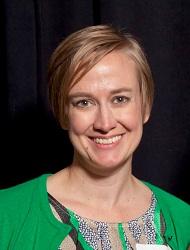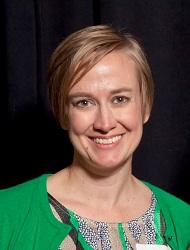
Credit: MU News Bureau
COLUMBIA, Mo. – For most people, trips to the doctor can be quite scary. For adolescents and young adults with autism, taking control of health care decisions is not only frightening, it also can be a barrier to independence. Now researchers from the University of Missouri have found that the health care process not only impacts adolescents with autism, but caregivers also feel they lack the skills and support necessary to help those adolescents achieve health-related independence. As more children with autism enter adulthood, improved communication between providers, adolescents and caregivers is needed to help those with autism transition to independence.
"A significant part of adulthood is managing health care, which includes regular trips to the doctor, following treatment plans, and being aware of symptoms and changes in health," said Nancy Cheak-Zamora, an assistant professor in the MU School of Health Professions and researcher in the Thompson Center for Autism and Neurodevelopmental Disorders. "This can be especially challenging for adolescents and young adults with autism."
Cheak-Zamora and her team conducted interviews with adolescents with autism and their caregivers. They found that both groups had a strong desire for the adolescents to manage their health care needs and that they attempted to take small steps toward independence, such as using pill boxes to help adolescents manage their own medications throughout the week. However, both groups lacked confidence when it came to building independence with adult health care. In many cases, caregivers were confused about their role in their adolescent's path toward independence. Decisions about guardianship and who makes legal health care decisions were found to be especially problematic. Adolescents expressed feeling upset that health providers would not talk directly to them, instead speaking only to the caregivers.
"Many caregivers said they felt forced to remain involved in their adolescent's care, even when their goal for the adolescents was independence," Cheak-Zamora said. "Meanwhile, adolescents want to overcome their fears. They feel it is important to have alone time with doctors and are frustrated when doctors communicate mainly with caregivers. These findings reiterate the importance of understanding the perspectives of both caregivers and adolescents and improving communication between caregivers, adolescents and providers to achieve shared independence goals."
###
"Exploration and comparison of adolescents with autism spectrum disorder and their caregiver's perspectives on transition to adult health care and adulthood," recently was published in the Journal of Pediatric Psychology. Co-authors of the study were Michelle Teti, associate professor of health sciences; Anna Maurer-Batjer, a graduate student in the School of Social Work; and Erica Koegler, a post-doctoral fellow in the School of Health Professions. Research was supported by the U.S. Army Medical Research Acquisition Activity and the Assistant Secretary of Defense for Health Affairs through the Autism Research Program. The content is solely the responsibility of the authors and does not necessarily represent the official views of the funding agencies.
Media Contact
Sheena Rice
[email protected]
573-882-8353
@mizzounews
http://www.missouri.edu
Original Source
http://munews.missouri.edu/news-releases/2017/0531-health-care-process-a-roadblock-for-adolescents-with-autism-and-their-caregivers/





